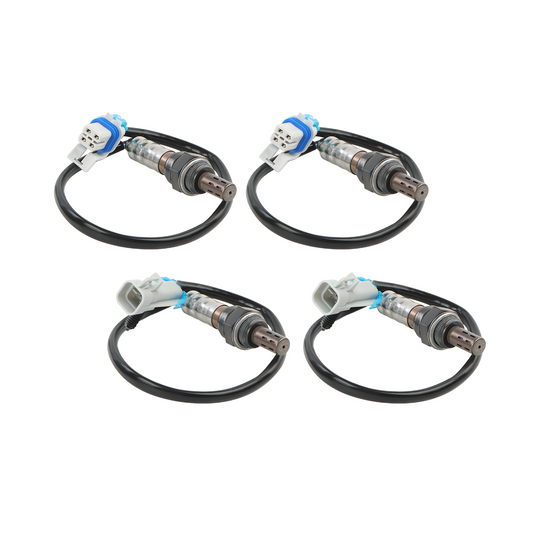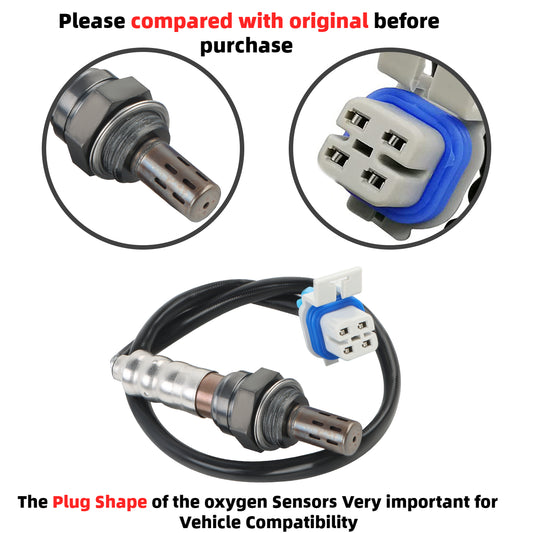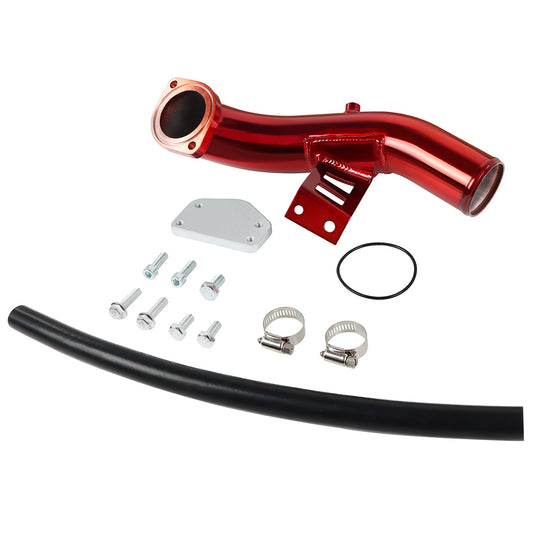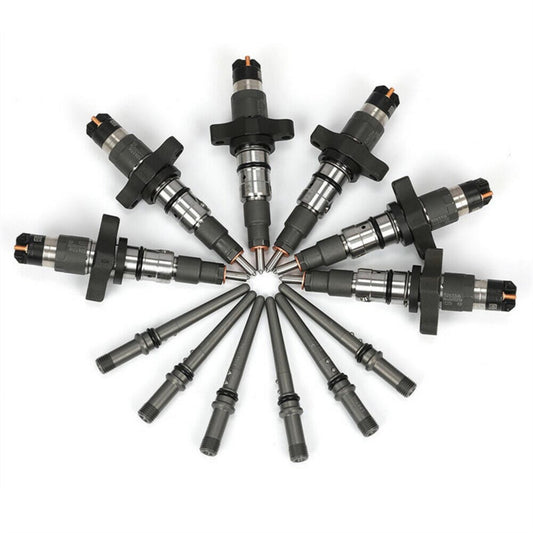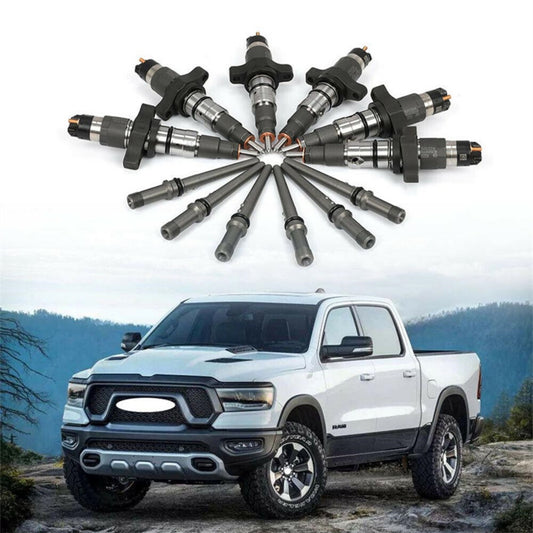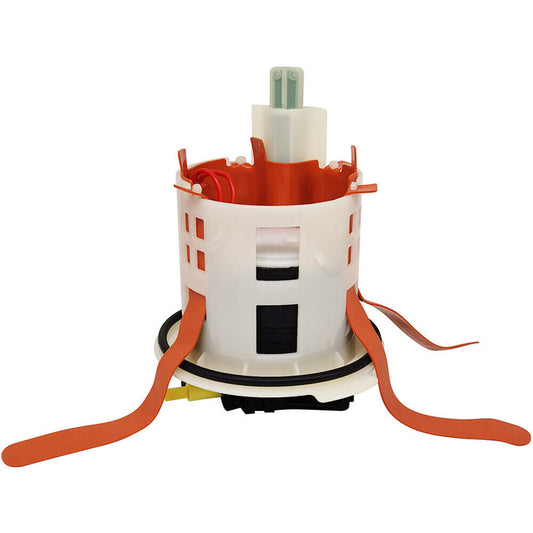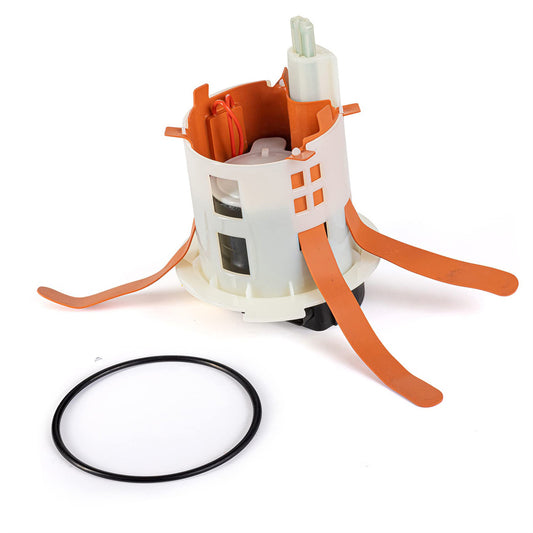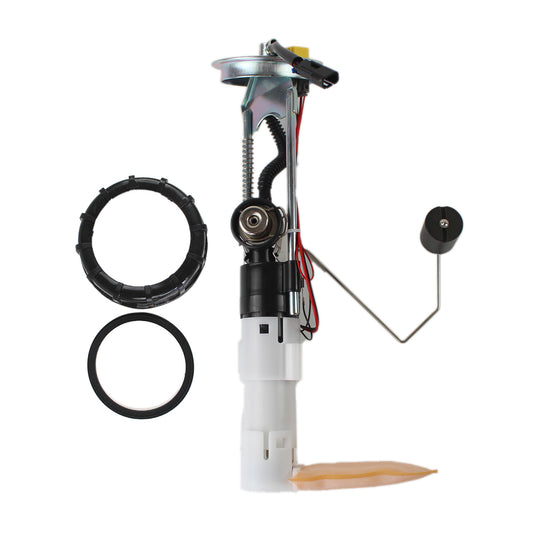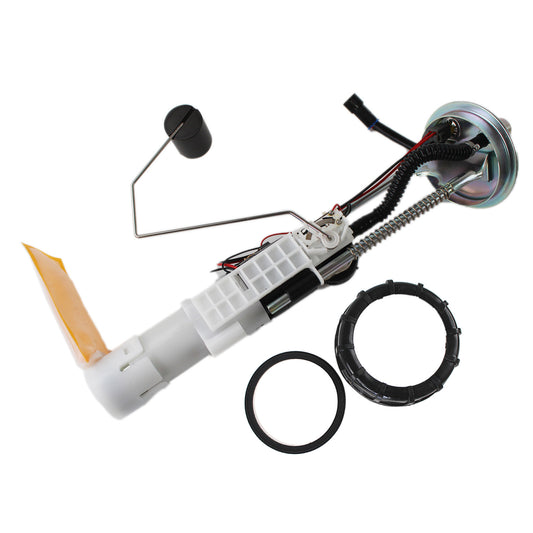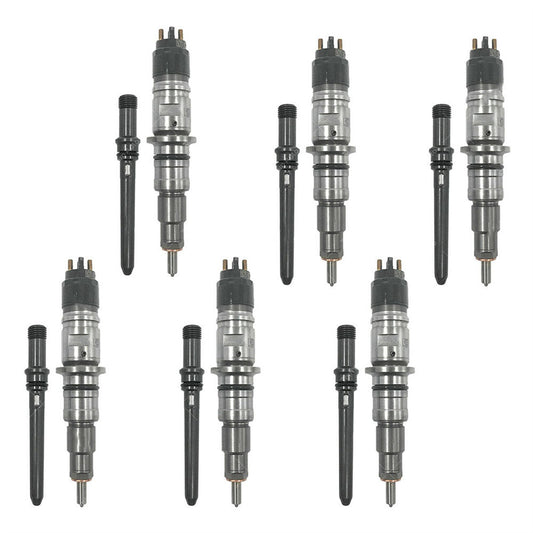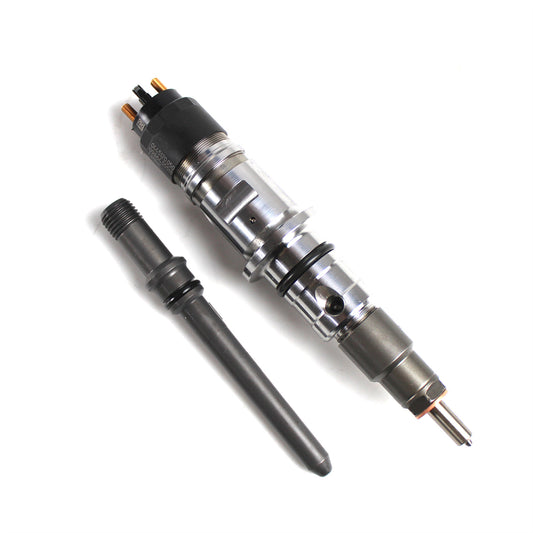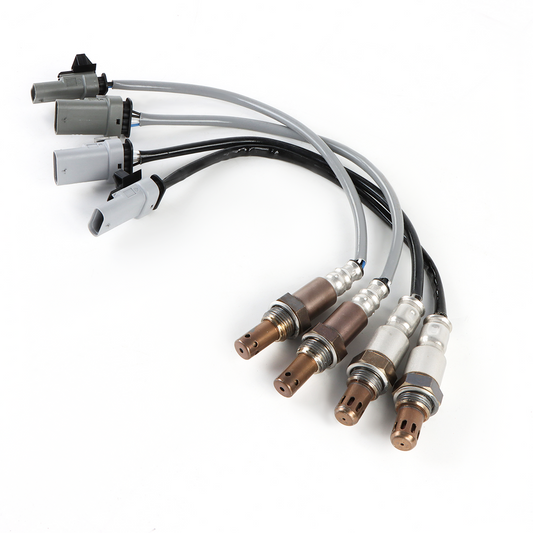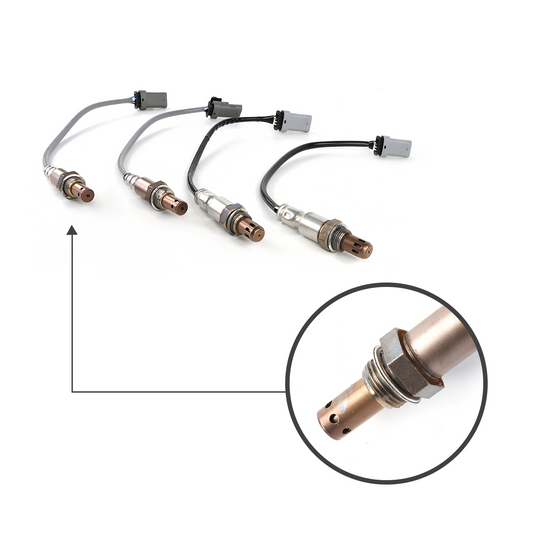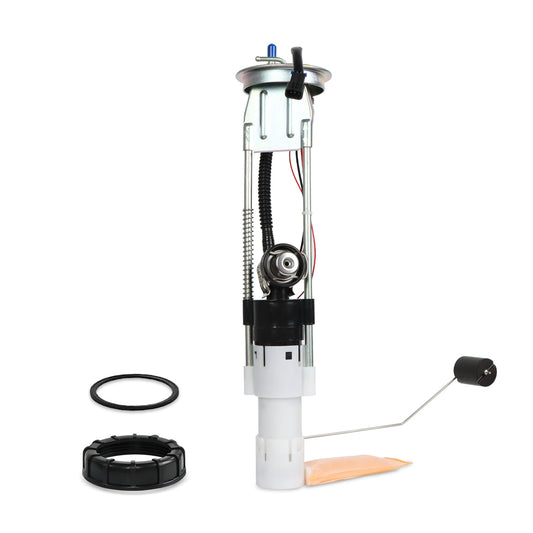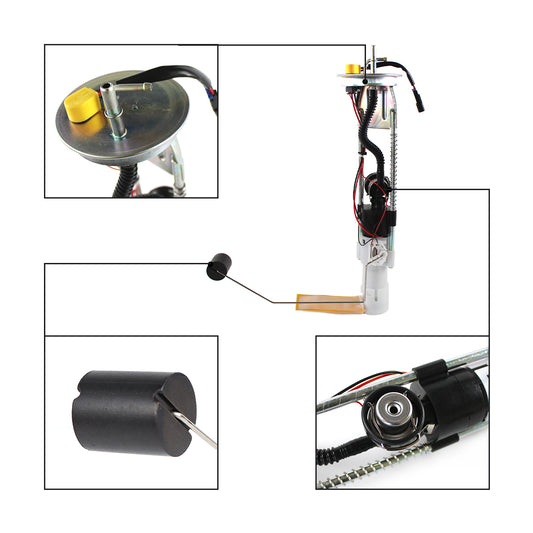Are Diesel Air Heaters Safe?
Picture this: you're embarking on an adventurous winter road trip, the frosty air swirling around your vehicle, but you're snug as a bug in a rug, thanks to your trusty diesel air heater. However, before you set off on your snowy escapade, there's one burning question that might've crossed your mind: are these heaters safe? Let's embark on a journey through the heart of diesel air heaters, exploring their cozy world and uncovering the safety secrets that keep you warm and secure on your wintry voyages.
Delving into the Cozy Realm:
Diesel air heaters, often dubbed as the unsung heroes of vehicular comfort, are the guardians of warmth in the chilliest of circumstances. From their sophisticated combustion process that ignites the magic of cozy heat to their precise temperature control capabilities, these heaters are engineered to create a snug oasis amidst the most unforgiving winter environments.
Understanding the Mechanics: The Art of Cozy Heat Creation
At the core of their prowess lies the intricate combustion process. Fuel injection and ignition set the stage for the enchanting dance of warmth, with a complete and efficient burning of the fuel-air mixture ensuring optimal energy conversion and minimal fuel wastage. With precision fuel supply regulation and meticulous airflow control, these heaters weave a symphony of warmth, guaranteeing a comfortable and consistent environment for all your wintry adventures.
Combustion Process Explanation:
Fuel Injection and Ignition: Diesel air heaters initiate the combustion process by injecting the fuel into the combustion chamber and igniting it using a spark plug or glow plug. The atomized fuel mixes with the air, creating a combustible mixture ready for ignition.
Complete Combustion: The efficient design of the combustion chamber facilitates the complete burning of the fuel-air mixture, maximizing energy conversion and minimizing fuel wastage. This thorough combustion process ensures optimal energy utilization and reduces harmful emissions.
Heat Exchange and Air Circulation: The generated heat is rapidly transferred to the surrounding air, which is then circulated throughout the vehicle's interior using a powerful fan. This heat exchange mechanism ensures the uniform distribution of warm air, creating a comfortable and cozy environment within the vehicle.
Precision Temperature Regulation through Fuel Supply and Airflow Control:Fuel Supply Regulation: By precisely controlling the fuel supply rate, diesel air heaters can adjust the heat output according to the desired temperature setting. This regulation prevents excessive fuel consumption and maintains an optimal fuel-air ratio for efficient combustion.
Airflow Adjustment: The control of the air intake and circulation is critical in fine-tuning the heating output. By adjusting the airflow rate, the heater can modulate the temperature output with precision, ensuring that the interior temperature remains consistent and comfortable, regardless of the external conditions.
The integration of these combustion and temperature control processes enables diesel air heaters to provide efficient and reliable heating solutions, ensuring that vehicles remain warm and functional, even during the harshest weather conditions. By optimizing energy utilization and temperature regulation, these heaters enhance both the driving experience and the overall safety and comfort of vehicle occupants.

Unveiling the Safety Mysteries:
Now, let's address the elephant in the room: safety. Diesel air heaters are not just about creating a toasty haven; they are meticulously designed with an array of safety mechanisms. These ingenious systems, from pressure valves that ensure the internal pressure stays in check to intelligent combustion monitoring systems that keep a keen eye on the fire within, work harmoniously to create a secure heating haven for your escapades.
Let's delve into the key safety features integrated within diesel air heaters:
Pressure Valve: The pressure valve serves as a critical safety component, regulating the internal pressure within the heater. By preventing excessive pressure build-up, it safeguards the heater from potential ruptures or explosions, thereby ensuring the safety of the users and the surrounding environment.
Combustion Monitoring System: The combustion monitoring system continuously assesses the combustion process, ensuring that it remains within safe parameters. This mechanism detects any irregularities or malfunctions in the combustion process, triggering timely alerts or automatic shut-offs, thus preventing potential fire hazards and gas leaks.
Fan Overload Protection: The fan overload protection mechanism is designed to prevent the fan from overheating or malfunctioning due to excessive stress or prolonged operation. By monitoring the fan's temperature and workload, this feature ensures that the fan operates within safe limits, reducing the risk of electrical failures and fire hazards.
Automatic Shutdown System: The automatic shutdown system acts as a failsafe mechanism, immediately halting the heater's operation in the event of any detected anomalies, such as overheating, fuel leakage, or abnormal pressure fluctuations. This rapid response helps to mitigate potential risks and protect users from any dangerous situations.
Temperature Control Safeguards: Integrated temperature control mechanisms help to regulate the heat output, preventing the heater from reaching unsafe temperature levels. These safeguards ensure that the heater operates within designated temperature ranges, minimizing the risk of overheating and potential fire incidents.
Each of these safety mechanisms plays a vital role in preventing accidents, ensuring the protection of users, and maintaining the overall integrity of the diesel air heater. By employing a comprehensive array of safety features, diesel air heater manufacturers prioritize user safety, offering reliable and secure heating solutions for various environments and applications.
Advanced safety technology and automated monitoring systems are pivotal in ensuring the prompt cessation of diesel air heater operation upon the detection of any irregularities or malfunctions. These sophisticated systems are designed to swiftly respond to potential safety risks, thereby preventing accidents and safeguarding users. Let's examine how these technologies function:
Real-Time Anomaly Detection:
Advanced safety technology incorporates real-time anomaly detection sensors that constantly monitor various parameters, including temperature, pressure, and fuel flow. In the event of any deviations from the predefined safety thresholds, these sensors trigger immediate alerts, prompting the automated monitoring systems to initiate the shutdown process.
Automated Emergency Protocols:
Automated monitoring systems are programmed with predefined emergency protocols that dictate the necessary actions in response to specific safety breaches. These protocols outline the precise steps for shutting down the heater, cutting off the fuel supply, and activating safety locks to prevent any potential hazards from escalating.
Integrated Sensor Networks:
An interconnected network of sensors is strategically placed throughout the heater's components, enabling comprehensive monitoring of critical aspects such as combustion, airflow, and temperature distribution. This network facilitates the rapid transmission of data to the central control system, enabling quick decision-making in critical situations.
Emergency Shutdown Override Prevention:
To prevent any unauthorized or accidental overrides of the emergency shutdown process, these advanced safety systems incorporate robust locking mechanisms and encrypted control protocols. This ensures that the shutdown sequence cannot be tampered with, guaranteeing the effectiveness of the safety measures in high-risk scenarios.
Remote Monitoring and Control:
Some advanced systems feature remote monitoring and control capabilities, allowing operators to supervise the heater's operation from a distance. This remote access enables swift intervention in case of emergencies and facilitates timely decision-making to avert any potential safety risks.
By harnessing the capabilities of these advanced safety technologies and automated monitoring systems, diesel air heater manufacturers prioritize user safety, minimizing the occurrence of accidents and enhancing the overall reliability and security of the heating system.

Beyond the Flames: Energy Efficiency and Eco-Friendliness:
But wait, there's more! Diesel air heaters are not just about creating warmth; they do so with impressive energy efficiency and an environmentally conscious footprint. With their optimized combustion process and advanced filtration techniques, they ensure efficient energy usage while minimizing harmful emissions, aligning perfectly with the global call for sustainable practices.
Here's a detailed analysis of how they maximize energy conservation and minimize environmental impact through advanced filtration and purification techniques:
Energy Efficiency Advantages
- Optimized Combustion Process: Diesel air heaters utilize an optimized combustion process, ensuring that the fuel is burned efficiently, minimizing energy wastage in the form of unburned fuel or incomplete combustion byproducts.
- Precise Temperature Control: These heaters are designed to provide precise temperature control, ensuring that the energy output is tailored to the specific heating requirements, thus preventing unnecessary energy consumption.
- Heat Distribution Efficiency: By employing powerful fans, diesel air heaters efficiently distribute the generated heat within the designated space, ensuring uniform heating without unnecessary energy losses.
Environmental Sustainability Measures
- Emission Control Technology: Modern diesel air heaters are equipped with advanced emission control technology, including catalytic converters and particulate filters. These technologies effectively minimize the release of harmful pollutants into the environment.
- Particulate Filtration Systems: Diesel air heaters are integrated with advanced particulate filtration systems that trap and remove particulate matter, ensuring that the emitted air is clean and free from harmful particles, thereby contributing to improved air quality.
- Low Emission Levels:Through the use of efficient combustion and exhaust treatment technologies, diesel air heaters maintain low levels of emissions, including nitrogen oxides (NOx) and carbon monoxide (CO), contributing to a reduction in overall environmental pollution.
- Adoption of Sustainable Fuels: Some diesel air heaters are adaptable to eco-friendly fuels, such as biodiesel, which further reduces their overall environmental impact, as these fuels are derived from renewable sources and produce lower levels of harmful emissions compared to traditional diesel.
By combining these energy-efficient practices with advanced filtration and purification technologies, diesel air heaters not only offer effective and reliable heating solutions but also demonstrate a commitment to minimizing their environmental footprint. As the world continues to prioritize sustainability, the adoption of such environmentally conscious heating solutions is pivotal in fostering a greener and more sustainable future.
The Installation Adventure:
Before you rev your engine and hit the road, the installation adventure awaits. Here's where we unlock the secrets to a secure and effective installation. From selecting the perfect spot to ensuring proper ventilation, every step is a careful dance to guarantee a cozy and hazard-free experience for you and your beloved vehicle.
Comprehensive Installation Guide for Diesel Air Heaters: Ensuring Safe and Optimal Performance
Here is a detailed installation guide encompassing critical aspects such as suitable installation locations, safety distance requirements, and ventilation specifications:
- Suitable Installation Location Selection:
- Choose an installation site that provides adequate space and is free from obstructions, ensuring unrestricted air intake and exhaust flow.
- Avoid installing the heater in close proximity to flammable materials, electrical components, or other heat-sensitive objects to prevent potential fire hazards or heat damage.
2. Safety Distance Requirements:
- Maintain a safe distance between the heater and any combustible materials, ensuring a minimum clearance as per the manufacturer's specifications.
- Adhere to safety distance requirements for the exhaust outlet, ensuring that it is positioned at a safe distance from any combustible materials or structures to prevent the risk of fire or heat damage.
3. Ventilation Requirements and Considerations:
- Ensure proper ventilation in the installation area to facilitate the smooth circulation of air and prevent the accumulation of hazardous fumes or gases.
- Install the heater in a well-ventilated space to minimize the risk of carbon monoxide buildup and ensure the optimal combustion process.
Significance of Correct Installation in Risk Reduction:
Correct installation significantly reduces potential safety risks associated with improper placement or inadequate ventilation. Ensuring the appropriate installation location and safety distance requirements prevent the occurrence of overheating, fire hazards, or the release of harmful emissions, thus safeguarding both the users and the surrounding environment. By meticulously adhering to the installation guidelines, users can optimize the heater's performance, minimize safety risks, and prolong its operational lifespan.
Professional Assistance and Adherence to Manufacturer's Guidelines:
Seek professional assistance, if needed, to ensure the precise and accurate installation of the diesel air heater. Adherence to the manufacturer's guidelines and recommendations is critical to guarantee the safe and effective operation of the heater. By following these comprehensive installation guidelines, users can create a secure and conducive heating environment, minimizing potential safety risks and maximizing the heater's overall performance and reliability.
Maintenance Magic: Ensuring Longevity and Safety:
Maintaining the magic is as crucial as creating it. Regular maintenance checklists, including fuel line inspections, electronic control system examinations, and fan cleaning protocols, are the spells that ensure your diesel air heater remains a reliable and secure companion on your thrilling escapades, no matter the weather.
Here is a detailed maintenance guide covering essential tasks such as cleaning the fuel lines, electronic control system, and fan:
Maintenance Checklist:
- Fuel Line Inspection and Cleaning: Regularly inspect the fuel lines for any signs of leaks, blockages, or damage.Clean the fuel lines to remove any accumulated debris or contaminants that might affect the fuel flow and combustion process.
- Electronic Control System Examination:Periodically check the electronic control system for any error codes or malfunctions.Clean the control panels and components to ensure proper functioning and prevent electrical issues due to dust or debris accumulation.
- Fan Cleaning and Inspection:Conduct routine inspections of the fan for any signs of wear, damage, or abnormal noise.Clean the fan blades and motor assembly to remove dust, dirt, or debris that may impede the fan's performance and compromise the heating efficiency.
Importance of Regular Maintenance for Sustaining Safety Performance
Regular maintenance plays a pivotal role in sustaining the safety performance of diesel air heaters. Proactive inspection and cleaning of critical components such as fuel lines, electronic control systems, and fans help identify potential hazards or malfunctions before they escalate into safety concerns. By ensuring the smooth operation of these components, regular maintenance minimizes the risk of fuel leaks, electrical failures, or overheating, thereby safeguarding both the users and the heating system.
Adherence to Manufacturer's Maintenance Guidelines:
Adhere to the manufacturer's recommended maintenance schedule and guidelines to ensure that all maintenance tasks are performed in accordance with the specified intervals and protocols. Regular maintenance not only enhances the safety performance of the heater but also extends its operational lifespan, providing users with a reliable and secure heating solution throughout its service life. By following this comprehensive maintenance checklist, users can uphold the heater's safety and performance, fostering a conducive and secure heating environment.
Surviving Extreme Climates: A Cozy Haven Amidst the Cold and Heat
But what happens when you're facing the extremes? In the midst of bone-chilling frosts or scorching heatwaves, diesel air heaters showcase their resilience. Advanced heating systems equipped with preheating mechanisms and robust insulation ensure that these heaters remain operational even in the most brutal weather conditions. These intelligent solutions effectively manage the heat dissipation in high temperatures and prevent fuel solidification in freezing conditions, thereby guaranteeing an uninterrupted cozy experience for the intrepid wanderer.
Let's delve into how advanced technologies address these challenges and ensure the heaters' safe operation:
- Cold Weather Resilience: In severely cold environments, diesel air heaters face challenges related to fuel viscosity, combustion efficiency, and component durability. Advanced heating systems are equipped with preheating mechanisms for fuel lines and components to prevent fuel solidification. Additionally, sophisticated insulation and heating element integration within the heater safeguard its critical components from frost damage, ensuring continuous and reliable operation even in the most extreme cold weather conditions.
- Heat Management Solutions: Operating diesel air heaters in high-temperature environments demands effective heat dissipation and temperature regulation mechanisms. Advanced cooling systems, including enhanced ventilation and heat dissipation features, are incorporated to prevent the heater from overheating. Furthermore, the integration of temperature sensors and automatic adjustment mechanisms enables the heater to optimize its performance within safe temperature ranges, mitigating the risks associated with overheating and thermal damage.
- Sealed Component Protection: To safeguard the internal components from extreme weather elements, such as snow, ice, or intense heat, diesel air heaters are equipped with sealed and weather-resistant casings. These specialized enclosures prevent moisture ingress, corrosion, or damage caused by external environmental factors, thereby ensuring the longevity and safety of the heater's internal mechanisms.
- Adaptive Control Systems: Advanced diesel air heaters feature adaptive control systems that dynamically adjust the heating output and combustion parameters based on the prevailing environmental conditions. These intelligent systems continuously analyze external temperature fluctuations and adjust the heating intensity accordingly, ensuring optimal performance while preventing any potential safety risks caused by excessive heat output or fuel wastage.
By integrating these advanced technologies, diesel air heaters can effectively withstand the challenges posed by extreme weather conditions, ensuring their safe and reliable operation in a wide range of environments, from arctic cold to scorching heat. These innovations not only enhance the safety performance of the heaters but also extend their operational lifespan, providing you with consistent and dependable heating solutions in even the harshest of climates.
The Extreme Survival Guide: Operating and Maintaining Your Heater in Harsh Conditions:
Operating and maintaining diesel air heaters in extreme environments demands adherence to specific guidelines to ensure their safety performance remains uncompromised. Here are some crucial recommendations for operating and maintaining heaters in such conditions:
- Pre-Operational Checks in Extreme Cold:
- Prior to operation in extremely cold climates, conduct preheating procedures for fuel lines and heating components to prevent fuel solidification and ensure smooth ignition.
- Regularly inspect the fuel quality and filter to guarantee optimal combustion efficiency in sub-zero temperatures.
2. Cooling System Management in High-Temperature Settings:
- Regularly inspect and clean the cooling system components to prevent overheating and ensure efficient heat dissipation.
- Monitor the ambient temperature closely and adjust the heater's settings accordingly to maintain safe operating temperatures.
3. Sealing and Insulation Integrity:
- Regularly inspect the seals and insulation of the heater for any signs of wear or damage in extreme weather conditions.
- Ensure that all seals and insulation components are intact and effectively protecting the internal mechanisms from external elements.
4. Regular Maintenance Regimen:
- Follow a strict maintenance schedule, including cleaning the combustion chamber, inspecting the ignition system, and checking for any signs of corrosion or damage to critical components.
- Lubricate moving parts regularly to ensure smooth and efficient operation, especially in extreme temperature conditions.
5. Emergency Preparedness and Safety Protocols:
- Establish comprehensive emergency protocols and safety procedures, including regular drills and training for handling critical situations in extreme weather environments.
- Ensure that all users are well-trained in emergency response protocols and are equipped with the necessary protective gear and tools.
6. Consultation with Technical Experts:
- Seek advice and guidance from technical experts or professionals familiar with operating heaters in extreme climates to ensure that the maintenance and operational practices align with the specific environmental challenges.
By adhering to these comprehensive recommendations, users can effectively maintain the safety and operational integrity of diesel air heaters, ensuring reliable and secure performance even in the most extreme environmental conditions.
🎁🎁Discount Code: WARM7
For a reliable and safe diesel air heating solution for your winter escapades, consider exploring the innovative products offered by Daysyore. With their cutting-edge technology and commitment to safety, Daysyore provides a range of high-performance diesel air heaters designed to make your journeys comfortable and secure.
So, are diesel air heaters safe? Without a shadow of a doubt, these guardians of warmth have not only mastered the art of creating cozy environments but have also aced the game of safety and sustainability. With their secure design, efficient performance, and eco-conscious approach, they stand tall as the reliable guardians of warmth for every wanderlust enthusiast embarking on chilly expeditions.


